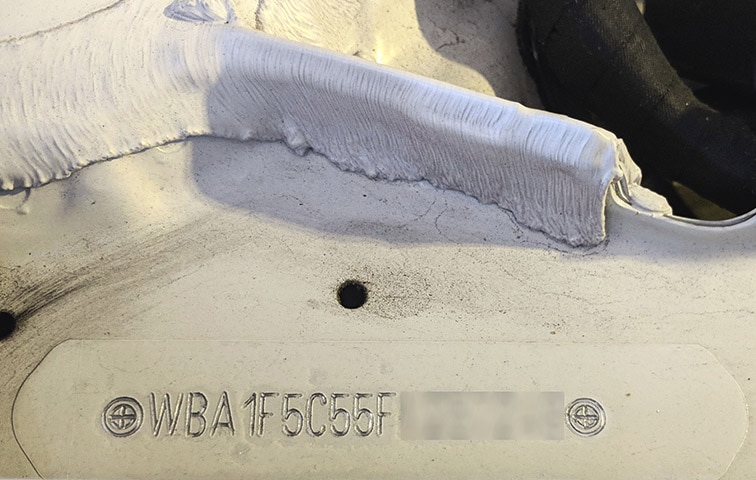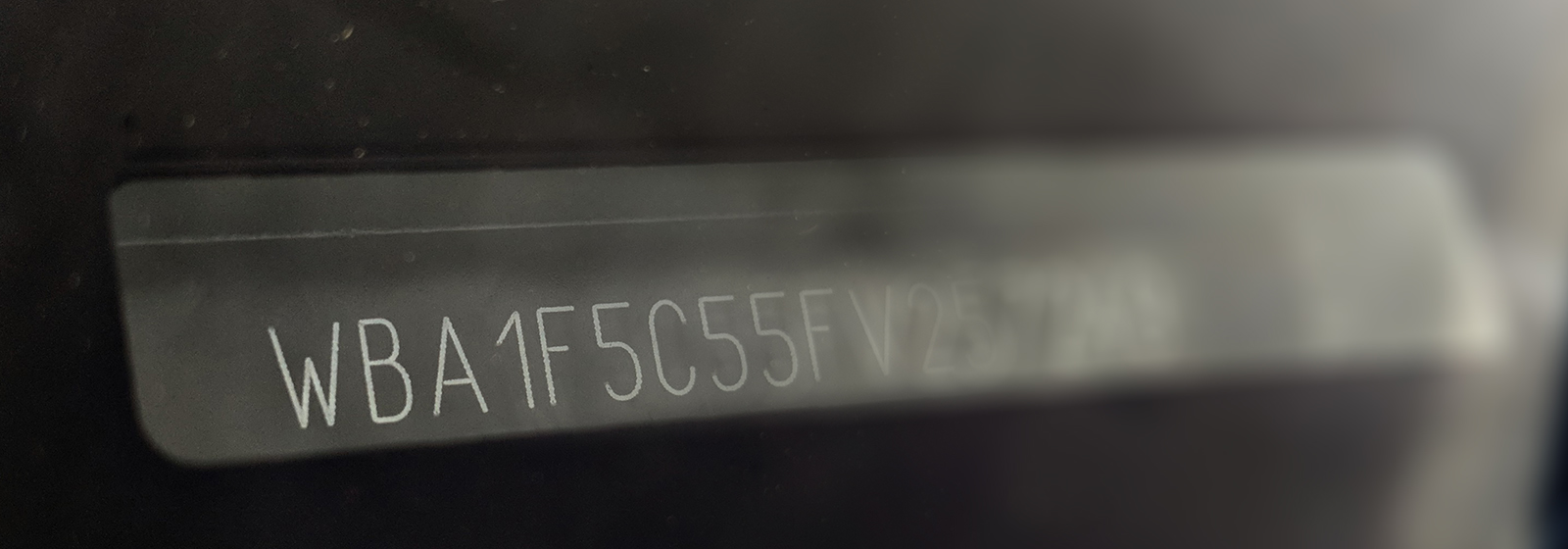What is a VIN and Why is it Important?
Understanding your Vehicle Identification Number
All modern cars sold in the United States are assigned a 17-digit alpha-numeric code, or vehicle identification number, the moment the manufacturing process begins. Like your social security number, the VIN almost never changes and is arguably the most important number on your car.
It’s the best way to positively ID a vehicle, and when you dig deeper, it contains a host of other crucial information.
How do I find my VIN?
The first place to look is on your dashboard. There’s a plate at the bottom corner of the driver’s side that’s visible through the windshield. You can also find the VIN on the sticker inside the driver’s door jamb, and on various body panels, like hoods, trunks, etc.
It’s also on your title, and your insurance card.
What Information does my VIN contain?
Generally, it breaks down this way:
- The first three characters denote the country of origin and manufacturer.
- The next five contain general information about the vehicle, including the model, engine, and gross vehicle weight rating.
- There’s a check digit in the ninth spot (it’s not related to your car, so don’t worry about it), but the 10th and 11th numbers indicate the car’s model year and specific plant at which it was built.
- Finally, the last six numbers are essentially your car’s serial number.
VIN decoders can provide even more detail.
That said, where the VIN holds the most value is that the number is used by everyone from dealerships to insurance companies to government agencies to track a vehicle’s history. As such, a VIN can be used to tell you if a used vehicle you’re considering has been reported as having been in an accident, if it has a salvage title, and in some cases, even how frequently it’s been in for service at the dealership.
What if my car has multiple VINs?
Simply put, it shouldn’t. But if you notice the VIN on a body panel – say, a hood – doesn’t match the VIN plate on the dashboard, it’s likely the original hood was damaged in a collision, and the replacement was sourced from another vehicle. The VIN on your dash is almost always the real deal.

What happens if someone finds out my VIN?
Don’t sweat it. They’ll be able to find out which options you have on your car, or get a CarFax report on its history. But your VIN is visible to anyone walking by the car, so think of it kind of like your license plate number: you wouldn’t broadcast it, but there’s no cause for alarm if someone knows it.
A dealership said I should have my VIN etched on my wheels and windows. Should I?
The rationale is it will make it harder for thieves to profit from stealing your car, because marked parts are harder to sell to legitimate businesses. Expert opinion is divided here, with some law enforcement agencies in favor of the practice, and
Finally, is it VIN or VIN Number?
Just VIN. Because it stands for Vehicle Identification Number, calling it a “VIN number” is redundant, just like saying you’re going to an ATM machine.
Written by humans.
Edited by humans.
 Aaron Miller
Aaron MillerAs a veteran automotive journalist, I have been fortunate enough to drive some of the most desirable cars on the planet and get to know some of the most important people in the industry. Before joining Capital One, I served as the Cars Editor for a major national website, and covered industry news and analysis for well-known automotive-specific sites. I also wrote feature articles and reviews for niche enthusiast websites. I’ve been obsessed with cars since—literally—before I can remember, with my collection of die-cast and slot cars taking center stage during my formative years. Simply put, for me, working isn’t really “work.”
Related articles
View more related articles
